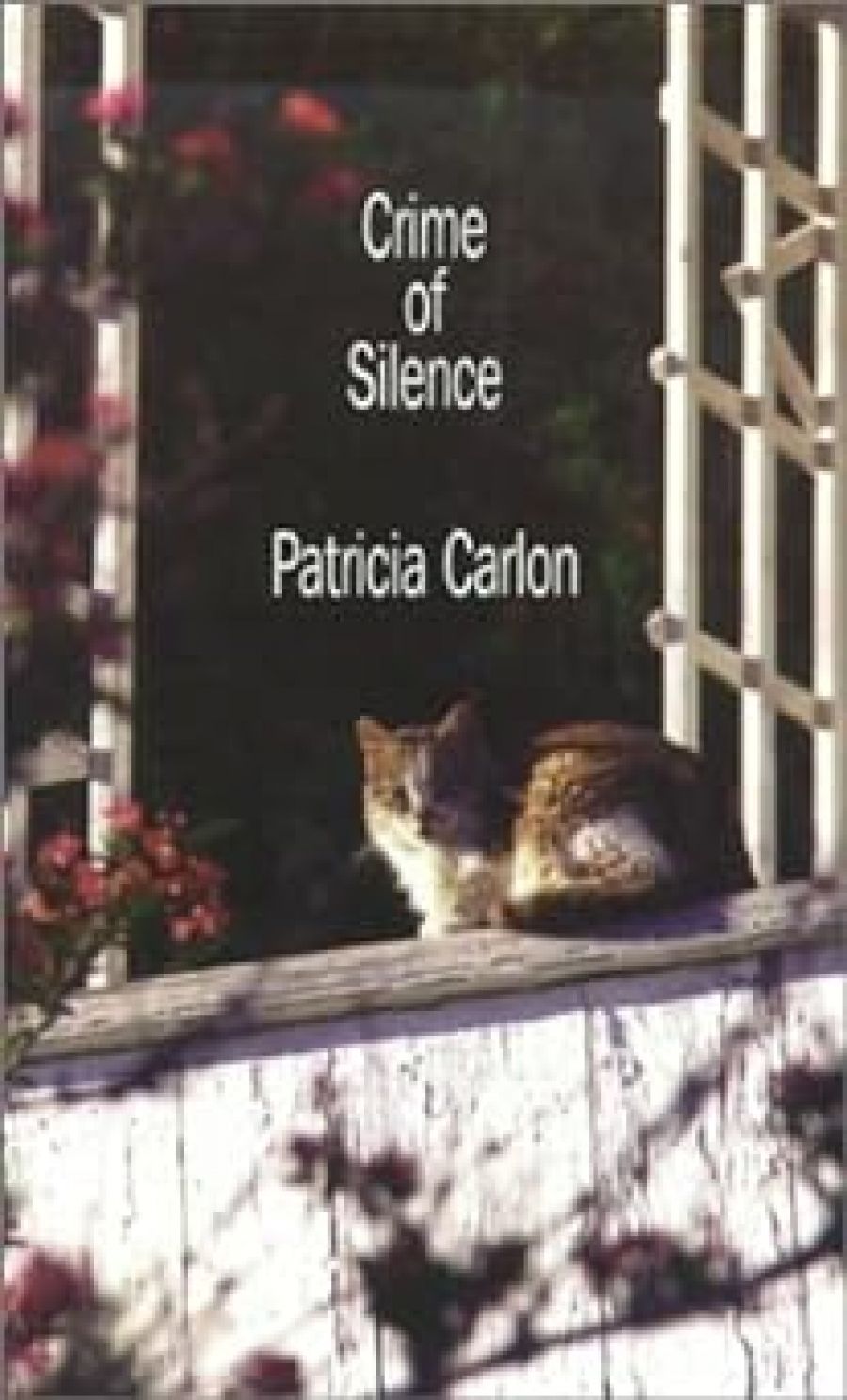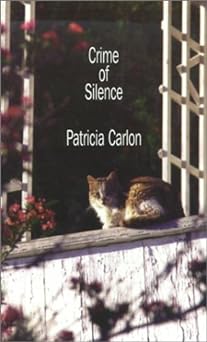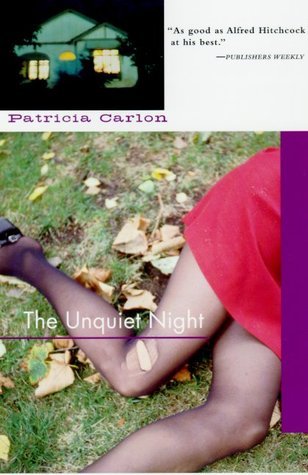
- Free Article: No
- Contents Category: Fiction
- Review Article: Yes
- Article Title: Carlon's Gift
- Online Only: No
- Custom Highlight Text:
It is the fashion, when discussing Patricia Carlon’s thrillers, to claim that she has been shamefully ignored in her home country. So what? If Miss Carlon (1927–2002) had been a genius of the running track or swimming pool and couldn’t get a gig in the Australian Olympic team, that would be a scandal. But she was a writer. She was ignored. What else is new? What we really want to know is whether her thrillers are worth all the fuss. Do they deserve to be reissued after being out of print for many years?
- Book 1 Title: Crime of Silence
- Book 1 Biblio: Text, $19.95pb, 213 pp
- Book 1 Cover Small (400 x 600):

- Book 2 Title: The Unquiet Night
- Book 2 Biblio: Text, 27.50pb, 215 pp
- Book 2 Cover Small (400 x 600):

Crime of Silence is a snaky piece of work. It coils round your mind and squeezes you through three stages of ever-tightening drama, with a final, cursory release. Some months before the action begins, George Winton’s small daughter was kidnapped and held for ransom. A wealthy man, he was able to pay for her safe return. Winton kept quiet about the crime, as the kidnappers ordered him to. Now, his crime of silence comes back to haunt him.
Evan Kiley’s small son has been kidnapped, but the ransom is beyond his means. Kiley has recently been in the papers: some land he owns may be worth a great deal of money if a certain highway development goes ahead. Until that happens, Kiley is as poor as the next man. He goes to Winton and tells his story, needling him and implying that, if Winton had been a braver man and had gone to the police about his daughter, this new abduction might never have happened. There is a terrible complication in all this: the boy’s babysitter was inadvertently killed, and now, unable to go to the police for fear that the kidnappers will harm his son, Kiley must hide the body. He and Winton put their heads together. The money is paid up. The small boy ought to be returned without more fuss. But worse lies in wait for Winton.
The Unquiet Night was also published in 1965. Its jacket proclaims that Miss Carlon is as good as Hitchcock; more puffs inside compare her to Barbara Vine and Patricia Highsmith. On the strength of these two novels, Miss Carlon doesn’t need such comparisons. The Unquiet Night is every bit as suspenseful as its sister novel. Mart Deeford is a very screwed-up young man. He strangles a teenage girl and, after dumping her body, realises that a woman and child may have observed him. Possibility hardens into fact in his fevered mind. He sets about finding them. He doesn’t care about the child: it’s the woman he’s after, it’s the woman who must be silenced. But the child is his means of finding Rachel Penghill. He spends a fraught evening tracking them by every means his cunning brain can come up with. And succeeds. And then the tension really cranks up.
These stories are intensely claustrophobic dramas. Although the outside world is physical enough, it’s the interior world that is described page after page. In Crime of Silence, Winton’s guilt, fears and anxieties are under examination; in The Unquiet Night, several characters get this treatment, yet the result is the same. It’s this close scrutiny of feelings and motives that drives the stories. Miss Carlon creates dangers and obstacles out of the very emotions and blindnesses she describes; and these are nearly always recognisable, everyday grievances and prejudices. Once Mart has dealt with Rachel, for example, it’s the meanness and egoism of people, and it’s men silencing women and women silencing children, that prolong her suffering and prevent her from being saved. Carlon’s focus on the psychology of her characters is what makes these two thrillers work so well.


Comments powered by CComment